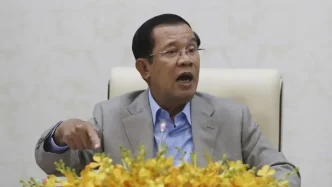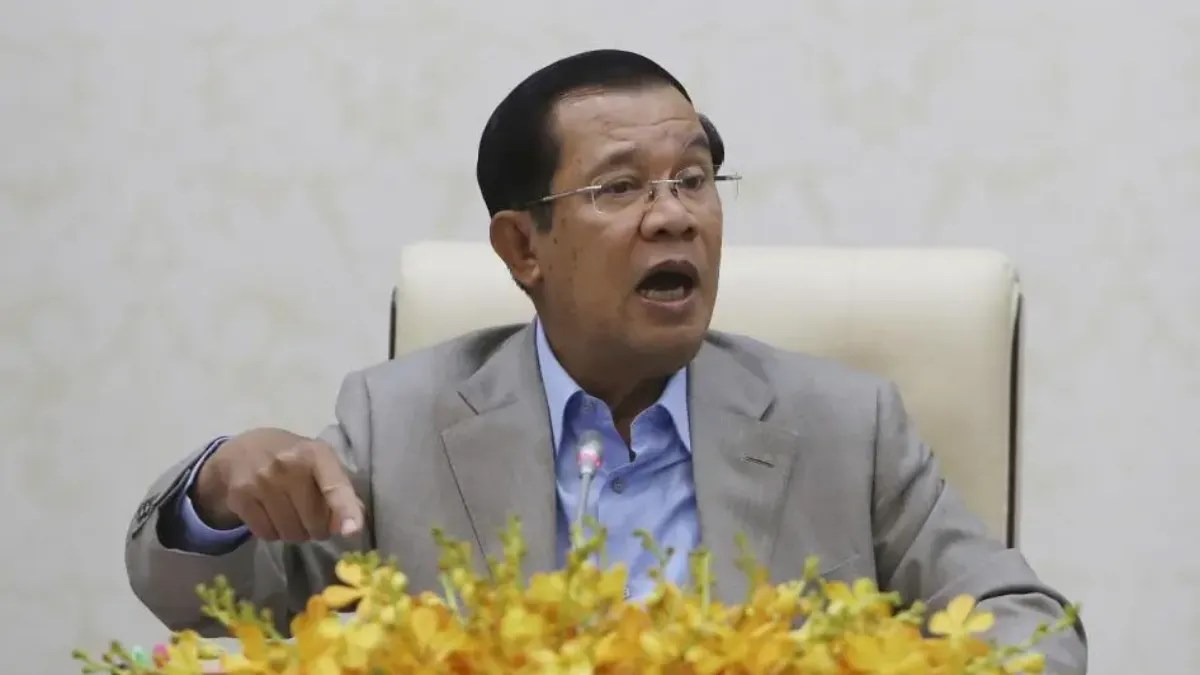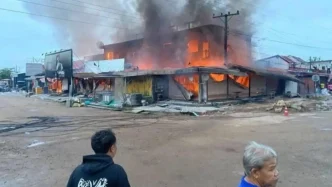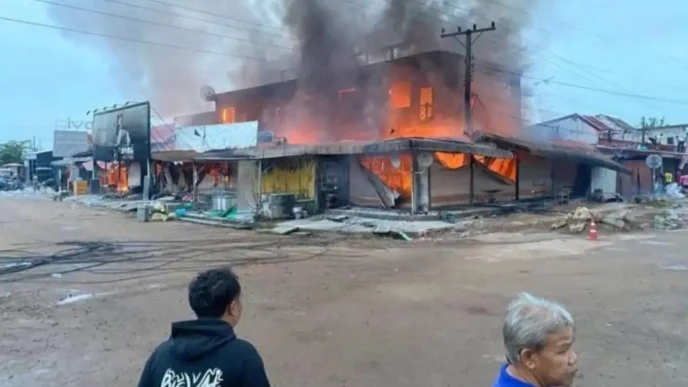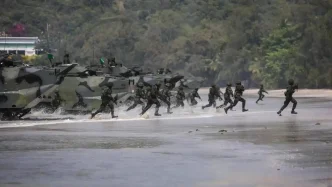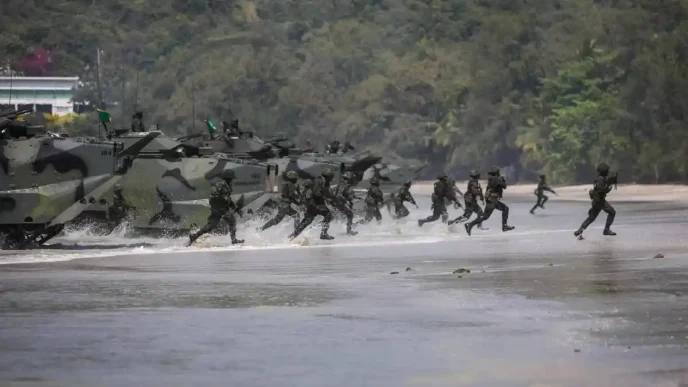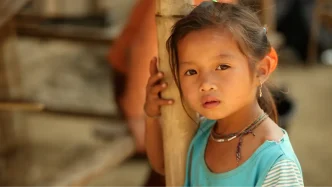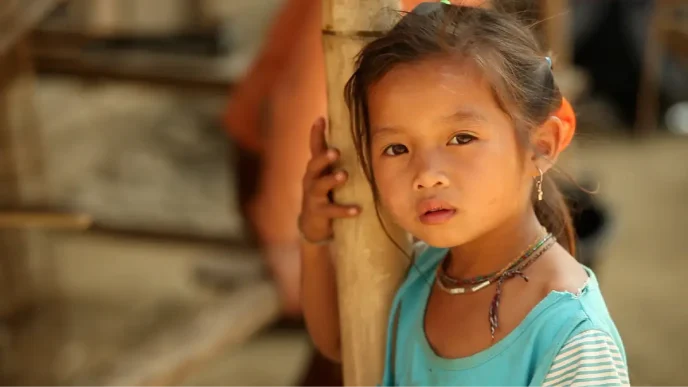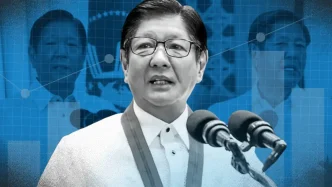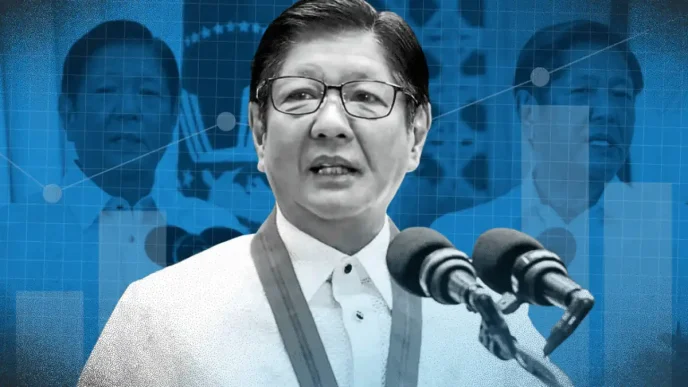After nearly four decades at the helm of Cambodia’s political landscape, Hun Sen stepped down as Prime Minister in August 2023, leaving behind a nation transformed yet deeply divided. His tenure, one of the longest of any leader in modern history, saw Cambodia emerge from the ashes of the Khmer Rouge genocide into a period of relative stability and economic growth. However, this progress came at a steep cost, with allegations of authoritarianism, human rights abuses, and systemic corruption tainting his legacy. As his son, Hun Manet, takes the reins, the question looms: will Cambodia break free from the shadow of Hun Sen’s iron-fisted rule, or will it remain shackled to a dynastic model of governance?
A Journey from Khmer Rouge to Power
Hun Sen’s early life was shaped by the tumult of Cambodia’s descent into chaos. Born on August 5, 1952, in Kampong Cham province, he joined the Khmer Rouge in 1970 at the age of 17, drawn by Prince Norodom Sihanouk’s call to resist the U.S.-backed Lon Nol government. Rising to the rank of deputy regimental commander in the Eastern Zone by 1975, Hun Sen was complicit in the brutal campaigns of a regime that would later kill an estimated 1.7 to 2 million people through starvation, forced labor, and mass executions.
By 1977, the Khmer Rouge’s internal purges, driven by Pol Pot’s paranoia, targeted Eastern Zone cadres, placing Hun Sen’s life in peril. Having lost his left eye in battle, he fled to Vietnam in June of that year, a decision that marked a turning point for both him and Cambodia. There, he aligned with other defectors to form the Kampuchean United Front for National Salvation, a group supported by Vietnamese forces. Their efforts culminated in the December 1978 invasion that ousted the Khmer Rouge by January 7, 1979, ending one of the darkest chapters in human history.
At just 26, Hun Sen was appointed Foreign Minister of the Vietnamese-installed People’s Republic of Kampuchea (PRK), navigating a regime isolated by Western powers and China, who continued to recognize the Khmer Rouge at the United Nations until 1990. His pragmatic approach during this period laid the groundwork for his ascent to Prime Minister in 1985 under Heng Samrin, the PRK’s largely ceremonial head of state. Together, they worked to rebuild a nation shattered by genocide, restoring basic infrastructure amid ongoing civil war with Khmer Rouge insurgents along the Thai border.
Stabilization and Controversy in the PRK Era
Under Hun Sen’s leadership as Prime Minister, the PRK grappled with economic ruin, famine, and international ostracism. One of the most contentious policies of this era was the K5 Plan, a mid-1980s initiative to fortify borders against Khmer Rouge guerrillas using barricades and landmines. The project relied on forced civilian labor, resulting in thousands of deaths from malaria and mine explosions. Human rights organizations have long criticized the plan for its disregard for civilian safety, tying Hun Sen to these violations despite his claims of Vietnamese oversight.
Throughout this period, Hun Sen maintained a cooperative dynamic with Heng Samrin, both as key figures in the Kampuchean People’s Revolutionary Party, later renamed the Cambodian People’s Party (CPP). There is no indication of internal power struggles, with Samrin transitioning to roles such as National Assembly President from 2006 to 2023, reflecting a sustained alliance. Hun Sen’s growing dominance stemmed from his control over the CPP and security apparatus, positioning him as the central figure in Cambodia’s political sphere by the late 1980s.
The Fragile Transition to Democracy
The 1991 Paris Peace Agreements signaled the end of Vietnam’s occupation and ushered in the United Nations Transitional Authority in Cambodia (UNTAC) to oversee democratic elections. With the PRK dissolved, Cambodia adopted a constitutional monarchy in 1993, reinstating King Norodom Sihanouk. The elections that year saw the royalist FUNCINPEC party, led by Prince Norodom Ranariddh, defeat Hun Sen’s CPP. However, refusing to cede control, Hun Sen negotiated a co-Prime Minister position alongside Ranariddh, creating an uneasy power-sharing arrangement.
This period of transition was marked by political instability. Tensions between Hun Sen and Ranariddh erupted in 1997, when Hun Sen orchestrated a violent coup, ousting his co-Prime Minister in street battles that left dozens dead in Phnom Penh. The move, widely condemned as a blow to Cambodia’s nascent democracy, delayed the country’s entry into the Association of Southeast Asian Nations (ASEAN) until 1999. It also cemented Hun Sen’s unchallenged authority, setting a precedent for his approach to opposition in the decades that followed.
Economic Gains Amid Repression
Under Hun Sen’s rule, Cambodia experienced significant economic growth, with GDP rising from $2.5 billion in 1993 to $31.8 billion by 2022, according to World Bank data. Foreign investment, particularly from China, fueled urbanization and the emergence of a Khmer middle class. Infrastructure projects and tourism, centered around cultural hubs like Siem Reap, became pillars of this transformation, offering a semblance of progress to a war-torn nation.
Yet, this economic narrative is incomplete without acknowledging the systemic issues that plagued his tenure. Corruption became entrenched, with CPP elites and Hun Sen’s family amassing wealth while rural communities faced displacement through land grabs for agribusiness. Environmental degradation, including the loss of 24% of Cambodia’s forest cover between 2001 and 2018 due to illegal logging linked to political elites, further compounded public grievances. More recently, projects like the China-backed Funan Techo Canal have raised alarms over ecological damage and Cambodia’s growing dependence on Beijing’s influence.
A Legacy of Authoritarianism
Hun Sen’s nearly 39 years in power were defined by a relentless suppression of dissent. The 1997 grenade attack on an opposition rally led by Sam Rainsy, which killed 16 and injured over 150, remains a stark symbol of political violence. Investigations pointed to Hun Sen’s bodyguard unit, yet no accountability followed, earning the date a grim nickname among activists: “Impunity Day.” Two decades later, the 2017 dissolution of the Cambodia National Rescue Party (CNRP), which had posed a credible electoral threat, alongside the arrest of its leader Kem Sokha on treason charges, effectively eliminated organized opposition.
Media freedom also suffered, with independent outlets like The Cambodia Daily forced to close and internet censorship escalating. Cambodia’s rating as “Not Free” by Freedom House in 2023, with a score of 24 out of 100, underscores the democratic deficit that characterized Hun Sen’s rule. His alignment with China, including controversial agreements like a naval base deal, has further drawn scrutiny over the erosion of national sovereignty.
Perhaps the most telling act of Hun Sen’s intent to perpetuate his influence came in 2023, when he orchestrated a transition of power to his son, Hun Manet, following elections widely criticized as neither free nor fair. The disqualification of the opposition Candlelight Party and the CPP’s sweep of all 125 National Assembly seats reinforced perceptions of a dynastic handover, drawing comparisons to authoritarian regimes elsewhere.
The Road Ahead for Cambodia
As Hun Sen assumes the role of Senate President, his influence over Cambodia’s political landscape remains undeniable. While his leadership brought stability and growth to a nation once synonymous with genocide, the cost of that stability—democratic erosion, human rights violations, and entrenched inequality—cannot be overlooked. For many Cambodians, particularly in rural areas and among younger generations, the promise of true democracy feels distant.
Hun Manet now faces the daunting task of defining his own legacy. Will he steer Cambodia toward greater openness and accountability, or will he remain bound by the authoritarian blueprint laid out by his father? As regional and global powers watch closely, the future of this Southeast Asian nation hangs in a delicate balance, with the echoes of Hun Sen’s rule likely to resonate for years to come.

